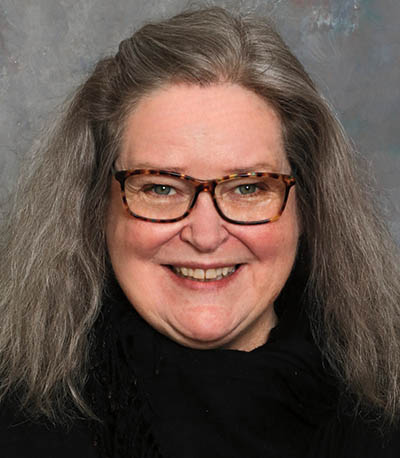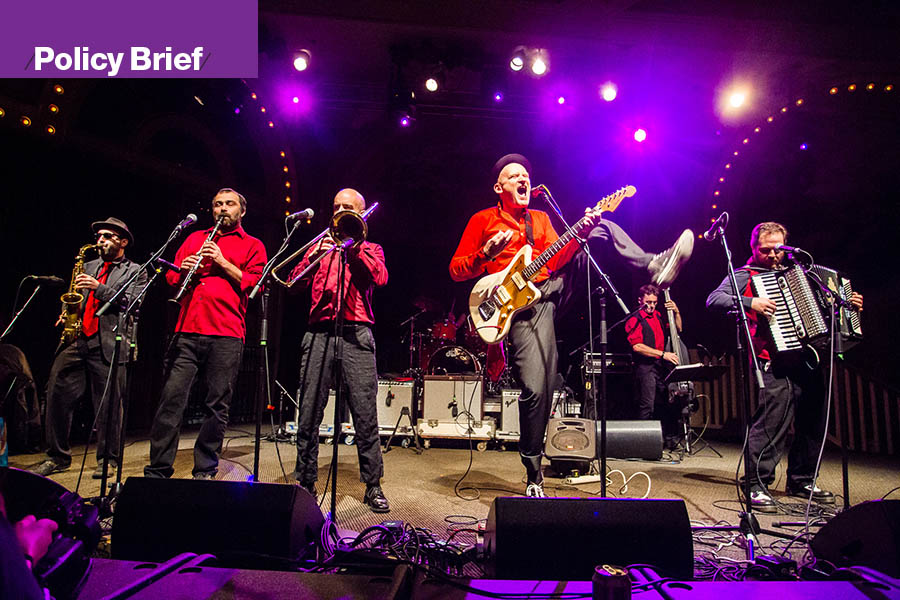The founder of MusicOregon talks about how public policy can make — or break — one of Oregon’s biggest industries.
There’s a $4 billion industry in Oregon that is naturally occurring, provides family-wage jobs, attracts tourism, empowers exports, supports local businesses and benefits every community in Oregon in some way. It employs more people than timber, salmon or cannabis. Yet historically it has received no economic development support, nor recognition by government and business leaders, and it has had no one standing up to defend it in a strategic and intentional way.
It’s the music industry.

From live performance to recording studios, producers, instrument makers, digital-rights distributors and all the staff jobs required to support these roles, Oregon’s music industry has grown organically in every corner of our state. We have earned an international reputation, attracting tourists and touring musical acts, and generating billions of dollars in economic activity. According to a new report from Business Oregon, the commercial music industry employs over 20,000 Oregonians and accounts for over $3.8 billion in economic output every year. That’s huge! Imagine we discovered a gold mine in Oregon worth billions of dollars. Elected officials and local government would be bending over backward to incentivize development, streamline regulations, create enforceable standards and do whatever they could to maximize the impact this naturally occurring resource could have on the future of our state. So let’s do that for music. Because the reality is that this natural resource is at risk of disappearing completely.
I co-founded MusicPortland in 2018 after recognizing that no one was advocating for the broad music economy as a serious professional imperative in Portland, and in 2020 founded MusicOregon to support the cultural and equity needs of our music creators. We hit the ground running, partnering with AFM99 and the City of Portland to create the second-largest official Musician Loading Zone program in the country (and we will soon outpace Austin). What a simple idea! Allow musicians to use the existing loading zones in front of music venues so theydon’t risk leaving their equipment parked a block away, or get a ticket that costs more than they were getting paid at the gig to start with.
Policies like that will make all the difference in our industry. Musicians aren’t asking for special rules, just consistent rules. That’s currently not the case, especially when it comes to the police. In Portland it’s known that at any moment, a police officer can show up to your music venue andsimply decide that the music is too loud and shut the entire establishment down. There’s no recourse for the musicians, the venue operators, the staff or the audience members. This is because for decades Portland has had two conflicting noise codes. There’s Title 18, which is an objective, professional standard that establishes measurable decibel limits. When you get a noise permit for your business or your block party, you’re getting a Title 18 noise variance. Portland also has Title 14A.30, which is a subjective “plainly audible” standard, empowering police to decide that something is too loud and shut it down.
Over the last two decades, Portland City Council has cut staff at the noise office until it was down to only one staff member. Meanwhile, Portland grew increasingly dense with thousands of new neighbors, and thousands of new construction projects being built quickly and cheaply next to existing businesses. When a triplex is built with insufficient insulation directly behind a music venue that has served our community for 50 years, and those new neighbors start calling the cops every night on that business, and the cops have a subjective standard they can use to appease this complaining neighbor, the business loses and eventually the business closes. No other industry has such a subjective standard for their operation. After almost two years of lobbying by MusicPortland, the Portland City Council is now finally taking action to reform the noise code, including repealing 14A.30.1.1, the subjective police standard of noise enforcement. But there’s so much more to do.
Music is vital for our identity as a state, as a region, and as a people. Musicians in every community, from Bend to Pendleton to Eugene to Klamath Falls, are experiencing pressures that threaten their careers. Venues are closing and development is making it harder to find places to practice, rehearse and perform. The cost of living is driving musicians farther away from wheret heir audiences are. At the same time, elected officials are deeply concerned about small-business success, public safety, night time activation, tourism, and economic development. Other communities have actively tied their identity to the music industry, such as Austin, Nashville, Memphis, and New Orleans, where they have fewer venues, less talented musicians, and less economic impact than Oregon has. Because without intentional support, the music industry will die. The next steps are a choice: Either embrace what is already here and help it grow to all of our benefit or watch it slowly fade away.
MusicPortland is advocating for policies to support the music industry at all levels of government, from the creation of an Oregon Office of Music to implementing acoustic zoning standards, reforming how the OLCC treats live performance spaces and revisiting how we attract tourists to our state.
Music is big business in Oregon. So let’s act like it.
Meara McLaughlin is executive director of MusicPortland and founder of MusicOregon.




